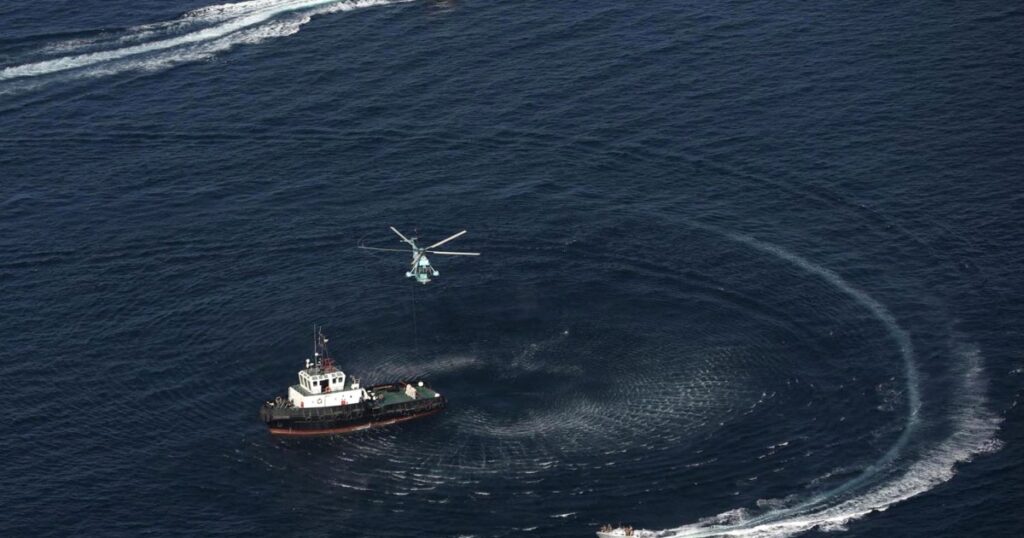For the past few years, governments across the world have paid close attention to conflicts in Ukraine and the Middle East. There, it is said, we see the first glimpses of what warfare of the future will look like, not just in terms of weaponry, but also in terms of new technologies and tactics.
Most recently, the United States-Israeli attacks on Iran demonstrated not just new strategies of drone deployment and infiltration but also new vulnerabilities. During the 12-day conflict, Iran and vessels in the waters of the Gulf experienced repeated disruptions of GPS signal.
This clearly worried the Iranian authorities who, after the end of the war, began to look for alternatives.
“At times, disruptions are created on this [GPS] system by internal systems, and this very issue has pushed us toward alternative options like BeiDou,” Ehsan Chitsaz, deputy communications minister, told Iranian media in mid-July. He added that the government was developing a plan to switch transportation, agriculture and the internet from GPS to BeiDou.
Iran’s decision to explore adopting China’s navigation satellite system may appear at first glance to be merely a tactical manoeuvre. Yet, its implications are far more profound. This move is yet another indication of a major global realignment.
For decades, the West, and the US in particular, have dominated the world’s technological infrastructure from computer operating systems and the internet to telecommunications and satellite networks.
This has left much of the world dependent on an infrastructure it cannot match or challenge. This dependency can easily become vulnerability. Since 2013, whistleblowers and media investigations have revealed how various Western technologies and schemes have enabled illicit surveillance and data gathering on a global scale – something that has worried governments around the world.
Iran’s possible shift to BeiDou sends a clear message to other nations grappling with the delicate balance between technological convenience and strategic self-defence: The era of blind, naive dependence on US-controlled infrastructure is rapidly coming to an end. Nations can no longer afford to have their military capabilities and vital digital sovereignty tied to the satellite grid of a superpower they cannot trust.
This sentiment is one of the driving forces behind the creation of national or regional satellite navigation systems, from Europe’s Galileo to Russia’s GLONASS, each vying for a share of the global positioning market and offering a perceived guarantee of sovereign control.
GPS was not the only vulnerability Iran encountered during the US-Israeli attacks. The Israeli army was able to assassinate a number of nuclear scientists and senior commanders in the Iranian security and military forces. The fact that Israel was able to obtain their exact locations raised fears that it was able to infiltrate telecommunications and trace people via their phones.
On June 17 as the conflict was still raging, the Iranian authorities urged the Iranian people to stop using the messaging app WhatsApp and delete it from their phones, saying it was gathering user information to send to Israel. Whether this appeal was linked to the assassinations of the senior officials is unclear, but Iranian mistrust of the app run by US-based corporation Meta is not without merit.
Cybersecurity experts have long been sceptical about the security of the app. Recently, media reports have revealed that the artificial intelligence software Israel uses to target Palestinians in Gaza is reportedly fed data from social media. Furthermore, shortly after the end of the attacks on Iran, the US House of Representatives moved to ban WhatsApp from official devices.
For Iran and other countries around the world, the implications are clear: Western platforms can no longer be trusted as mere conduits for communication; they are now seen as tools in a broader digital intelligence war.
Tehran has already been developing its own intranet system, the National Information Network, which gives more control over internet use to state authorities. Moving forward, Iran will likely expand this process and possibly try to emulate China’s Great Firewall.
By seeking to break with Western-dominated infrastructure, Tehran is definitively aligning itself with a growing sphere of influence that fundamentally challenges Western dominance. This partnership transcends simple transactional exchanges as China offers Iran tools essential for genuine digital and strategic independence.
The broader context for this is China’s colossal Belt and Road Initiative (BRI). While often framed as an infrastructure and trade project, BRI has always been about much more than roads and ports. It is an ambitious blueprint for building an alternative global order. Iran – strategically positioned and a key energy supplier – is becoming an increasingly important partner in this expansive vision.
What we are witnessing is the emergence of a new powerful tech bloc – one that inextricably unites digital infrastructure with a shared sense of political defiance. Countries weary of the West’s double standards, unilateral sanctions and overwhelming digital hegemony will increasingly find both comfort and significant leverage in Beijing’s expanding clout.
This accelerating shift heralds the dawn of a new “tech cold war”, a low-temperature confrontation in which nations will increasingly choose their critical infrastructure, from navigation and communications to data flows and financial payment systems, not primarily based on technological superiority or comprehensive global coverage but increasingly on political allegiance and perceived security.
As more and more countries follow suit, the Western technological advantage will begin to shrink in real time, resulting in redesigned international power dynamics.
The views expressed in this article are the author’s own and do not necessarily reflect Al Jazeera’s editorial stance.


